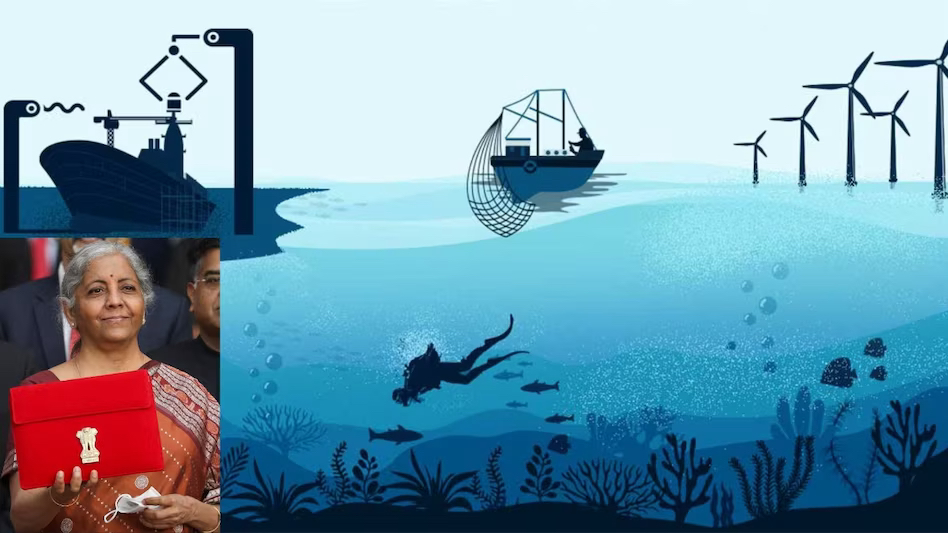Blue Economy 2.0 (Indian Express)

- 01 Feb 2024
Why is it in the News?
The Interim Budget presented by Finance Minister Nirmala Sitharaman on (February 1) stressed environment-friendly development through the promotion of a ‘blue economy’.
What are the Proposals in the Interim Budget Regarding the Blue Economy?
- Finance Minister Nirmala Sitharaman announced plans to launch a scheme focusing on restoration, adaptation measures, coastal aquaculture, and mariculture, adopting an integrated and multi-sectoral approach.
- Restoration and adaptation measures aim to preserve ocean health during economic activities, while aquaculture involves farming aquatic plants and animals, and mariculture focuses on rearing marine creatures in saltwater.
- Additionally, five integrated aqua parks will be established, and the Pradhan Mantri Matsya Sampada Yojana (PMMSY) will be strengthened to increase aquaculture productivity, double exports to Rs 1 lakh crore, and create 55 lakh employment opportunities in the near future.
What is the Blue Economy?
- While the term blue economy can simply refer to economic activities related to the sea and the coasts, it is generally understood to have an element of sustainability in it.
- Thus, the European Commission defines it as “all economic activities related to oceans, seas and coasts.
- It covers a wide range of interlinked established and emerging sectors”; the World Bank says the blue economy is the “sustainable use of ocean resources for economic growth, improved livelihoods, and jobs while preserving the health of ocean ecosystems.”
- For a country like India, with a long coastline, diversity in terms of fish and other ocean produce, and multiple tourism opportunities, the blue economy is highly significant.
Does India Have a Blue Economy Policy?
- The blue economy 2.0. a draft policy framework on India’s Blue Economy was first released in July 2022.
- The policy document contained “key recommendations on National Accounting Framework for Blue Economy and Ocean Governance, Coastal Marine Spatial Planning and Tourism Priority, Marine Fisheries, Aquaculture and Fish Processing.
- Manufacturing, Emerging Industries, Trade, Technology, Services and Skill Development, Logistics, Infrastructure and Shipping, Coastal and Deep-Sea Mining and Offshore Energy and Security, Strategic Dimensions and International Engagement.”
- When the G20 summit was hosted in New Delhi under India’s presidency, the Comptroller & Auditor General of India (CAG) chaired the Engagement Group for Supreme Audit Institutions (SAls) of the member countries in June 2023. Two priorities for the SAI20 deliberations were blue economy and responsible Artificial Intelligence.
